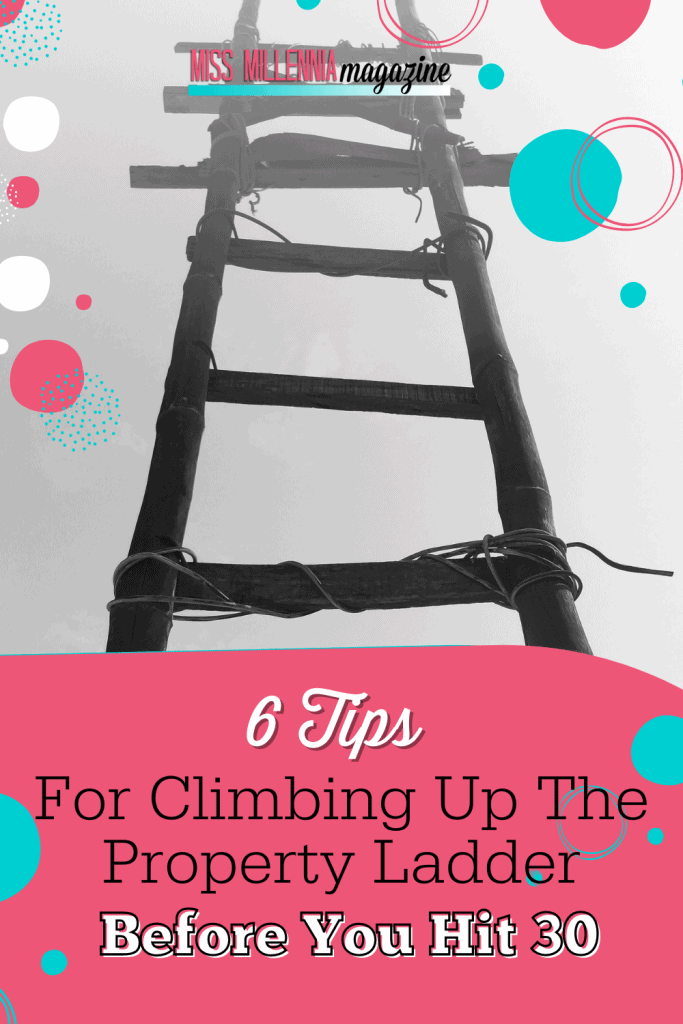6 Tips For Climbing Up The Property Ladder Before You Hit 30

Getting on the property ladder used to be relatively easy, but these days, things are different. House prices are rising, and young buyers are having to save for bigger deposits. At the same time, wages aren’t keeping up, leading to an imbalance in what people can afford.
Fortunately, there are still plenty of things that you can do to get on the property ladder, even if you are a millennial. Here are some tips to get you started:
Get An Interest-Only Mortgage
Getting an interest-only mortgage is a great way to get started on the property ladder. That’s because you don’t actually have to pay back the principal on the loan at all. Instead, you just pay the interest payments, lowering your monthly costs.

Sure, the bank will own part of the property forever, but if house prices increase, your equity will go up. If you keep paying the mortgage for 30 years and come to the end of the term, you can simply renew it and start the whole process over again. Banks will let you keep paying interest into your old age out of your pension income. If you see fit, you can sell your home, take the equity, and use that to pay for a smaller house, suitable for retirement.
Move To Cheaper Area
Moving to a cheaper area is another way to get your foot on the first rung of the property ladder. When you search for apartments overseas, for instance, you often find much better deals than you can back home.
However, even in the domestic market, there is often significant variation. One street in a neighborhood might be costly, while another is incredibly inexpensive.
Remember, cheaper areas don’t necessarily mean lower quality. It just means that there are more sellers than buyers, and there can be many reasons for that.
Stop Spending Money On Things You Don’t Need
Many people fall into the trap of spending money on things that they don’t need as they go through life. They buy expensive cars, vacations, and other unnecessary items, believing that they have to live now.

Unfortunately, this way of thinking denies a person the ability to build wealth long-term. And it stops you from saving up for a down payment on a home.
Try to cut out all of the things you don’t need to spend money on, such as meals out, and so on. Focus on just putting away a little bit of money every month so that you can build a nest egg for the future.
Get A 50-Year Mortgage
In the past, the longest mortgage you could get was 30 years. In this time frame, you had to pay off both the interest and the principal so that, by the end of it, you owned your house.
However, that’s no longer true. Now you can get 50-year mortgages that spread the cost of repayment over a longer period.
50-year mortgages are popular among first-time buyers because they let them lower their monthly repayments. However, the total interest you will pay over the course of your life will be higher.
Borrow From Your Parents
The economy currently favors people who have property far more than people who don’t. Real estate values rise regularly, meaning that those who have been in their homes for twenty years or more are sitting on vast wealth.

For many younger buyers, these people are their parents. Therefore, many are going to the “bank of mom and pop” to ask for a loan (or gift). Borrowing from parents is often the only realistic way of getting on the property ladder and avoiding high rental costs.
Get A Joint Mortgage
Another interesting idea is for young people to get joint mortgages. To do this, you and several other people, not necessarily your spouse, combine your incomes to take out a larger mortgage than you could individually. You then share the equity in the home in proportion to the amount of debt you agree to cover.
Ideally, you want to share with people who have a similar income level to you so that everyone has an incentive to maintain the property. For example, you could own 50 percent of the property, and so could a friend.
Of course, joint ownership comes with risks. If parties fail to make repayments, it can lead to repossession issues, liquidations, and so on. Plus, you need to be sure that you get along well with everyone who lives with you. Living with friends is different from living with family, for obvious reasons.









